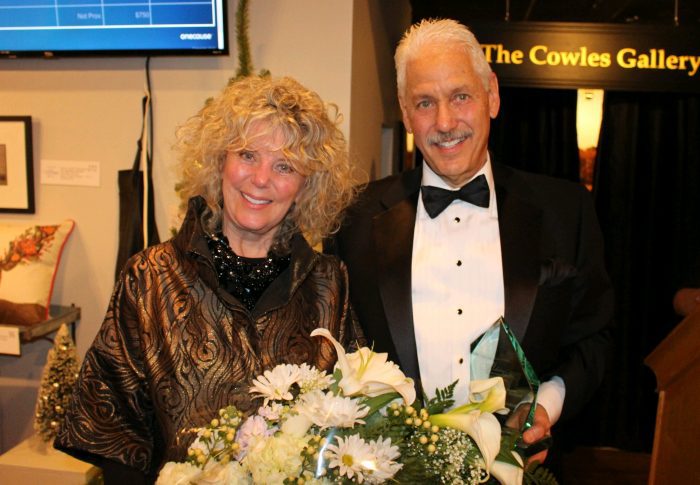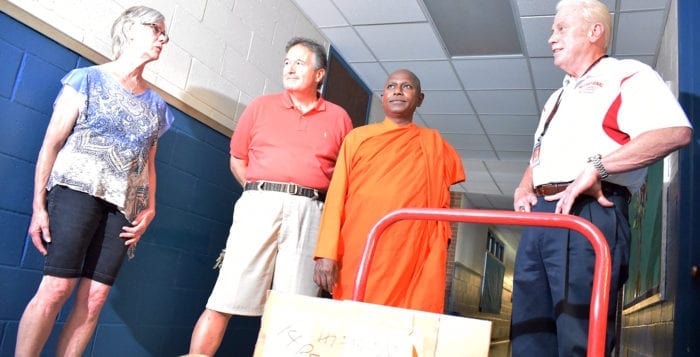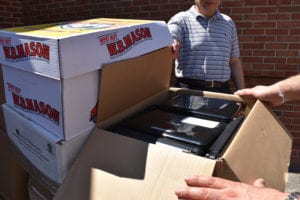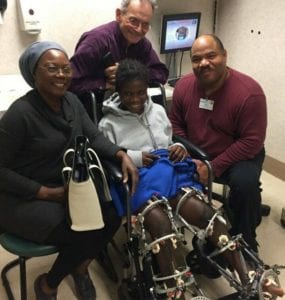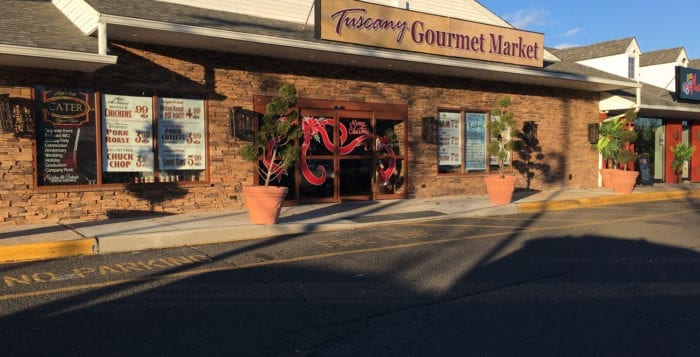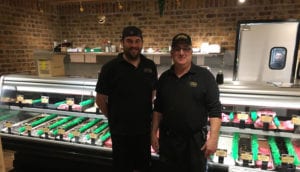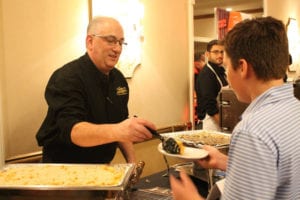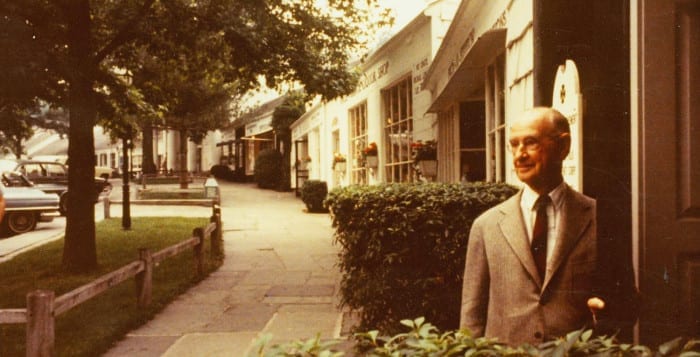Harlan and Olivia Fischer have been married for nearly 50 years. Even more impressive than the longevity of their marriage is their track record of giving back to the community and surrounding areas.

These philanthropic efforts have earned the Head of the Harbor residents a spot among TBR News Media’s People of the Year for 2022. This year isn’t the first time one of the Fischers has been featured in the special edition. Harlan Fischer, president of Branch Financial Services, was a Man of the Year in 2000 for his accomplishments in business.
Tom Manuel, founder of The Jazz Loft in Stony Brook, knows firsthand about the Fischers’ generosity.
“The Fischers were literally the first people to come alongside and support The Jazz Loft when we were in our planning stages back in 2014,” he said. “Each year they have selflessly, generously, and without reservation supported us more and more, and we are honored to have an annual 12-performance concert series in their name.”
Recently, the couple offered a $25K match for the venue to establish an endowment.
“They are true philanthropists doing things for the right reasons,” Manuel said.
The Fischers’ involvement with The Jazz Loft began one day as Harlan was walking one of the couple’s dogs in the Stony Brook Village Center. He ran into Manuel, who was promoting the future venue. The two began talking about jazz, according to The Jazz Loft founder.
Manuel said it turned out Fischer had read about the plans to open the venue, and when he heard the musician was performing at the shopping center, he went to check him out.
Manuel said Fischer gave him an envelope with a check inside. He thought it was for $50, but it turned out to be for $1,000.
The Fischers became even more involved in the Three Village area when Harlan moved his office from Smithtown to Setauket in 2020. Driving past Stony Brook Village Center twice a day, he asked Manuel and The Ward Melville Heritage Organization president, Gloria Rocchio, if WMHO needed assistance with anything. These discussions led to the Fischers sponsoring the installation of a replica of the center’s historic weathervane that shattered last year, and the restoration of the Hercules figurehead that sits by Stony Brook Harbor as well as the pavilion that shelters it.
WMHO board members debuted the restored Hercules figurehead at a press conference on Oct. 14.
“When we make contributions to places, we like to see the results of it,” Harlan Fischer said at the press conference.
Rocchio said in a phone interview that the board members met the Fischers several years ago.
“We found that we have the same interest, which is the love of the community,” she said.
With the Hercules project, Rocchio said Harlan took time out of his busy schedule to get to know the contractors, workers and artists involved in the restoration.
“He’s a very interesting man, and the two of them are very talented,” Rocchio said.
She added, “They’re good people. They have really embraced the community completely.”
The couple are also known for rescuing dogs, and they regularly donate to Little Shelter Animal Rescue’s annual Pet-A-Palooza in Huntington.
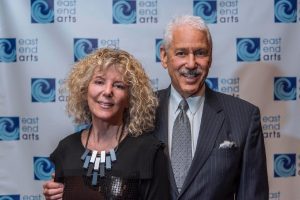
Leigh Wixson, director of Smithtown Animal Shelter, said the Fischers donated $7,600 for a dog park behind the shelter in September 2017. She said the park helps with the dogs’ physical activities and interaction. The park was named the Olivia and Harlan Fischer Recreational and Development Park and is the size of half a football field.
Wixson said the dogs will pull handlers toward the park when they see it, and can play fetch, run and explore. The shelter sometimes sets up small pools and sprinklers for the animals.
“It’s enriching having that large of a park,” she said. “We had outdoor pens already, but they’re quite small and didn’t allow a lot of space for running.”
In addition to their philanthropy, many know the couple for their love of art, and their contemporary studio art glass collection. In an August 2020 interview with TBR, Harlan Fischer said, for him, that love began after a 1988 car accident when he was hit by a drunk driver. He realized he could have been killed, and up until that point his life was mostly about work.
“All of a sudden it got me in touch with my mortality,” he said.
A talk with his physical therapist led him to joining the Smithtown Rotary Club, and he went on to be president of the club in 1997-98. It was during this time he learned about the Smithtown Township Arts Council and became a board member. He eventually became president of the council for five years, and learned a good deal about art from the director of the council at the time, Norma Cohen.
Harlan and Olivia’s love of art has led to raising money for various organizations, including hosting fundraisers in their home. Among their philanthropic activities in the art community have been being members of The Long Island Museum’s Directors Advisory Circle and sponsoring the East End Arts Music Masters Mentorship Program for high schoolers. Harlan Fischer is also a former board president of the Art League of Long Island. Last year, the East End Arts Council selected the Fischers as their 2021 Community Impact Award recipients.
Recently, Olivia Fischer has also been knitting scarves and donating them to Gallery North’s gift store, where all profits from the scarves go back to the gallery, according to Kristen Domiano, a registered service associate with Branch Financial Services.
Over the years, the Fischers have become so much more to the people they interact with than philanthropists.
Domiano described the couple as “generous” and “thoughtful.”
“There aren’t even words to describe how they are,” she said. “They’re so special.”
Due to his profession, Harlan, who is also chair of the Head of the Harbor Planning Board, usually winds up being the main spokesperson for their efforts.
Olivia “never likes to be in the spotlight, but it’s the two of them together,” Domiano said.
She added it’s cute to see the couple together. “He starts talking about Olivia, and he just gets choked up.”
Harlan Fischer is also generous and appreciative regarding his staff, according to Domiano, describing him as honest and a mentor.
Manuel said he and his wife, Laura, “are blessed to have friends with such outstanding character.”
“Harlan and Olivia have been such generous sources of encouragement, advice and genuine love,” he said. “Our community is lucky to have them here not just because of the amazing projects and things they do, but because they call our community their home. Our community at large is a better place because they are a part of it.”

